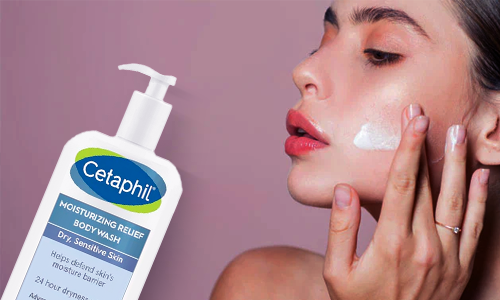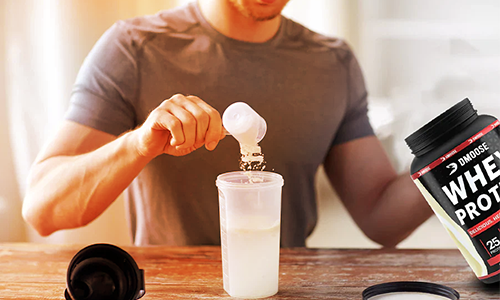Cetaphil has long been a trusted name in skincare, especially for individuals with sensitive or acne-prone skin. As one of the most recommended moisturizers by dermatologists worldwide, its gentle and non-comedogenic formula is widely used by people of all ages. However, despite its popularity, many users still question whether Cetaphil moisturizer might be contributing to breakouts. With countless reviews and mixed experiences, taking a closer look at this widely-used product's ingredients, user reactions, and overall performance is essential. This article explores the topic in depth, helping you understand whether Cetaphil moisturizer could be a friend or foe for your skin. We'll cover a detailed overview of Cetaphil moisturizers, their benefits, correct usage, and practical skincare tips. Stay with us as we break down the facts to help you make the most informed decision for your skincare routine.
Overview of Cetaphil Moisturizers
Cetaphil moisturizers are well-known for their gentle, dermatologist-recommended formulas that cater to all skin types, especially sensitive and dry skin. Skincare experts developed these moisturizers to hydrate and protect the skin without causing irritation or clogging pores.
One of the standout features of Cetaphil moisturizers is their lightweight yet effective formulation. They are enriched with glycerin, niacinamide, and panthenol that help lock in moisture, strengthen the skin barrier, and soothe dryness or discomfort.
Whether you're dealing with occasional dryness or looking for a daily moisturizer, Cetaphil offers a variety of options—ranging from creams to lotions—tailored for the face and body. Their non-comedogenic and fragrance-free properties make them a safe choice for people prone to acne or skin sensitivity.
Overall, Cetaphil moisturizers are trusted by professionals and users for delivering long-lasting hydration and promoting healthy, balanced skin.
Does Cetaphil Moisturizer Cause Acne?
No, Cetaphil moisturizer does not usually cause acne. Dermatologists widely recommend it for acne-prone and sensitive skin. Most Cetaphil moisturizers are non-comedogenic, meaning they are specially formulated not to clog pores, which helps prevent breakouts.
However, individual skin reactions can vary. Some people might experience acne-like breakouts if they use a formula that doesn't suit their specific skin type—a thicker cream on oily skin. Choosing the right Cetaphil product for your skin is always best, such as oil-free or lightweight versions for acne-prone skin.
Cetaphil is considered safe, gentle, and effective for daily use, especially when dealing with dry or irritated skin and acne. But as with any skincare product, patch testing or consulting a dermatologist is a smart step if you're unsure.
Benefits of Cetaphil Moisturizer
Cetaphil Moisturizer is a well-known skincare product trusted by dermatologists and users worldwide. Here are some key benefits of using Cetaphil Moisturizer:
1: Deep Hydration –
Cetaphil provides long-lasting moisture by locking in water and preventing dryness. It helps soothe rough and flaky patches, making skin feel soft and smooth throughout the day.
2: Gentle on Sensitive Skin –
The fragrance-free formula is non-comedogenic and won't clog pores or cause breakouts. It's ideal for people with sensitive skin or those prone to redness and irritation.
3: Lightweight and Non-Greasy –
Unlike heavy creams, Cetaphil absorbs quickly and doesn't leave a sticky or greasy feel. This makes it perfect for daily use under makeup or sunscreen.
4: Strengthens the Skin Barrier –
With ingredients like glycerin and panthenol, it helps restore the skin's natural barrier. This protects against environmental stressors and keeps moisture locked in.
5: Dermatologist Recommended –
Cetaphil is clinically tested and recommended by dermatologists worldwide. It's trusted for its safe, effective, and skin-friendly formula.
6: Suitable for All Ages –
From babies to adults, anyone can use Cetaphil safely. Its mild formula makes it a family-friendly moisturizer for everyday skincare.
Tips for Choosing the Right Cetaphil Product for Acne-Prone Skin
If you have acne-prone skin, choosing the right skincare product can make a big difference in your skin's health and clarity. Cetaphil offers a variety of gentle, dermatologist-recommended products that cater to sensitive and acne-prone skin. However, not all Cetaphil products are made the same, so selecting the one that best suits your skin's needs is essential. Here are some key tips for choosing the right cetaphil product for acne-prone skin.
1: Look for Non-Comedogenic Formulas –
Always choose Cetaphil products labeled "non-comedogenic," which means they won't clog your pores. Clogged pores are one of the main causes of acne, which is crucial for breakout-prone skin.
2: Pick Products with Salicylic Acid or Zinc –
For active breakouts, products like Cetaphil's acne cleanser with salicylic acid can help unclog pores and reduce inflammation. Zinc-based formulas are also great for calming red, irritated skin.
3: Choose Oil-Free Moisturizers –
Acne-prone skin still needs hydration, but oily products can worsen the problem. Opt for Cetaphil's oil-free, lightweight moisturizers that keep skin soft without making it greasy.
4: Consider a Gentle Cleanser for Daily Use –
Harsh cleansers can strip your skin and lead to more breakouts. Cetaphil's Gentle Skin Cleanser is ideal for daily use because it cleans without irritating or over-drying the skin.
5: Avoid Fragrances and Irritating Additives –
Fragrances and certain additives can trigger breakouts or sensitivity. Go for fragrance-free Cetaphil products that are tested for sensitive skin to reduce the risk of irritation.
6: Use a Sunscreen Suitable for Acne-Prone Skin –
Sun protection is a must, even for oily or acne-prone skin. Cetaphil's oil-free, broad-spectrum SPF moisturizers offer sun protection without causing breakouts or leaving a greasy residue.
Choosing the right product is all about understanding your skin and treating it gently—Cetaphil offers trusted solutions if you know what to look for.
How to Use Cetaphil Moisturizer for Acne-Prone Skin
Using a moisturizer when you have acne-prone skin might feel counterintuitive, but it's a crucial step in your skincare routine. Cetaphil moisturizers are designed to be gentle, non-comedogenic, and suitable for sensitive or breakout-prone skin. Let's look at how to use Cetaphil moisturizer for acne-prone skin.
1: Start with a Clean Face –
Always wash your face with a gentle cleanser before applying moisturizer. This helps remove dirt, oil, and impurities, allowing the moisturizer to absorb better.
2: Use the Right Amount –
A dime-sized amount is usually enough. Too much product can lead to clogged pores, even if the formula is non-comedogenic.
3: Apply While Skin is Damp –
For better hydration, apply the moisturizer while your skin is still slightly damp. This locks in moisture and helps maintain the skin barrier.
4: Be Gentle When Applying –
Use your fingertips to massage the product into your skin gently. Avoid rubbing harshly, especially around active breakouts.
5: Use Twice Daily –
Apply once in the morning and once before bedtime. Consistency is key in managing acne-prone skin and keeping it moisturized.
6: Avoid Mixing with Harsh Ingredients –
If you're using acne treatments like benzoyl peroxide or salicylic acid, wait a few minutes before applying moisturizer to prevent irritation or pilling.
A proper moisturizing routine with Cetaphil helps balance oily areas and soothe dry patches—helping your skin heal without triggering more breakouts.
Relevant Questions:
Is Cetaphil moisturizer bad for acne?
Cetaphil moisturizer is generally not bad for acne and is often recommended for sensitive, acne-prone skin. It's non-comedogenic, meaning it won't clog pores. However, results may vary depending on your skin type and the specific product.
Can Cetaphil moisturizer cause bumps on the face? "
Cetaphil moisturizer is generally non-comedogenic, meaning it shouldn't clog pores or cause bumps. However, some people with sensitive or acne-prone skin may react to certain ingredients. If bumps occur, it's best to stop use and consult a dermatologist.
Do dermatologists recommend Cetaphil moisturizer?
Yes, many dermatologists recommend Cetaphil moisturizer. It is known for being gentle, non-comedogenic, and suitable for sensitive skin. Its simple, fragrance-free formula helps maintain the skin's natural moisture barrier.
Conclusion
In conclusion, Cetaphil moisturizers are generally considered safe and effective, even for those with acne-prone skin. While individual skin types and sensitivities vary, most users find Cetaphil's non-comedogenic and gentle formulas beneficial rather than irritating. So, Does Cetaphil Moisturizer Cause Acne? The answer depends on your skin's unique needs, but it helps maintain moisture without clogging pores for many. To ensure you're using authentic and high-quality skincare, always purchase from trusted sources like BoastaBite, where you can explore a full range of dermatologist-recommended products.





Leave a comment
This site is protected by hCaptcha and the hCaptcha Privacy Policy and Terms of Service apply.